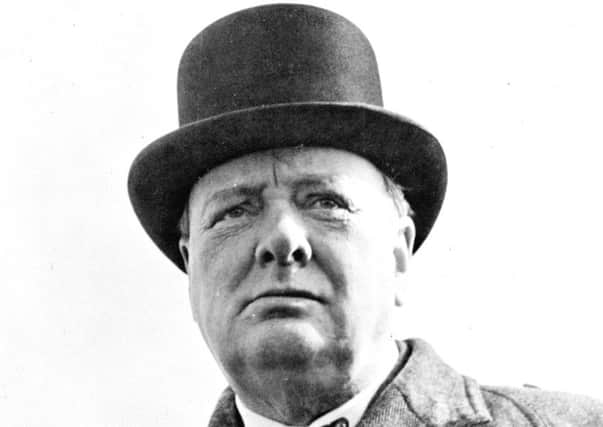Jute baron paid Churchill to promote Home Rule


Sir James Caird gave the then MP for Dundee £33,500 in 1910 - the equivalent of £3.5 million in today’s money.
The wealthy industrialist made clear he wanted Churchill, then aged 36 and a Liberal party member, to use the money to secure his reelection and promote the causes of free trade and home rule for Scotland and Ireland.
Advertisement
Hide AdAdvertisement
Hide AdThe donation was more than eight times the MP’s average annual income.
The episode is recalled in a new book, No More Champagne: Churchill and His Money, by historian David Lough.
There is no evidence of impropriety in the way Churchill handled the money, which he kept in separate bank accounts and did not use for his personal overdraft.
However, records of the account from 1915 and 1916 are missing.
“Sir James Caird died in March 1916 and Churchill’s finances were under stress at the time as his ministerial salary had been replaced by the pay of an army colonel, but it is impossible to be precise about whether he eventually used the balance of Caird’s money because the records of (the relevant) accounts during 1915 and 1916 are simply missing,” Lough, a former banker, writes.
“What we can say is that the money was never transferred to his or Clementine’s main bank account and that he never included them in any of forecasts of his own cash flow or the additional borrowings that he needed from the bank during the war.”
Home rule for Scotland and Ireland was already firmly on the agenda for the Liberal Government in the immediate period before the First World War.
The Government of Ireland Act - which intended to provide home rule for the island - was passed in 1914, but its implementation was postponed following the outbreak of war against Germany that same year.
Advertisement
Hide AdAdvertisement
Hide AdA similar bill for Scotland passed a second reading in the House of Commons in 1913 but did not progress further.
Caird, who made his fortune in Dundee’s then booming jute textile industry, was a noted philanthropist. He paid for the city’s concert hall which still bears his name as well as funding a wide range of scientific research.
In 1902, Caird gave £18,500 to Dundee Royal Infirmary to build a hospital dedicated to treating cancer.
Churchill was first elected MP for Dundee in 1908, the same year he married his wife Clementine, and served in David Lloyd George’s Liberal government.
Although a descendant of the Duke of Marlborough, he frequently struggled to afford his lavish lifestyle.
Churchill, by his own estimation, was paying his wine merchant £1,200 a year until 1914 - the equivalent of £100,000 today.
By 1921, his personal overdraft stood at £28,000.
Churchill lost his seat at the 1922 General Election when Tayside voters returned the prohibitionist candidate Edwin Scrymgeour.
He was hampered by ill health during the campaign, which required him to have an appendectomy. He later said he left Dundee “without an office, without a seat, without a party and without an appendix”.
It is has since been claimed by several historians that the future prime minister never forgave Dundee for his defeat. He refused the freedom of the city when offered in 1943.